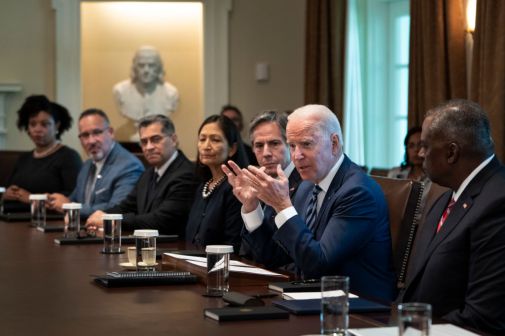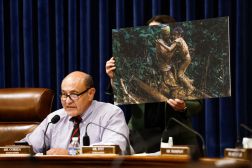Inside DHS’s complicated relationship with industry

A new report examining the business relationship between the Department of Homeland Security and private sector contractors can be summed up in two words: It’s complicated.
The report, issued Wednesday by the Homeland Security and Defense Business Council and Grant Thornton, found divides between industry and agency officials on each’s responsibility for pitfalls in acquisitions and the pursuit for innovation. Surveyors interviewed more than 200 respondents made up of industry executives, and current and former government officials.
Current government officials saw the need for bringing more innovation and technology into agency operations, but only 42 percent thought the current culture provided an environment that embraced the risk-taking required to implement it.
“‘Nine out of 10 people will tell you they want innovation, but in the final analysis, no one is going to take the risk to pay for it,’” said David Haun, director public sector for Grant Thornton, quoting one response.
To be more innovative, Chip Fulghum, DHS deputy under secretary for management, said the agency has to find a better way to incentivize risk.
“The government is risk-averse, our people are risk-averse. Because, typically, when you take risks and fail, nothing good comes from it,” he said. “We’ve got to find a way to reward innovative failure in a way that gets folks to continue to take risks.”
Fulghum added that DHS was “hell bent” on getting to the cloud as a catalyst for its future IT development and will soon be setting benchmarks for cloud adoption. He added that the agency was also evaluating its infrastructure, including continued work on deploying continuous diagnostics and mitigation and possibly consolidating security operations centers.
When asked whether the homeland security industrial base exercised appropriate accountability in supporting the homeland security mission, only 44 percent of current government officials agreed or strongly agreed, with another 49 percent remained undecided.
The report also said that some government respondents felt that industry behavior during procurements stood in contrast to its desire for greater collaboration and communication, key drivers for innovation in a time when agencies are looking for IT modernization.
Government respondents cited obstacles like low-priced bids that were unrealistic, industry’s narrow focus on request for proposal requirements and contract protests as culprits that hamstring efforts for innovation.
Conversely, industry respondents said that DHS’s acquisition process needed improvements to make it more efficient and transparent, including refining “narrow and inconsistent” solicitation requirements that drive the current protest environment.
“I will say there are a couple of things that saddened me [about the report],” said Huban Gowadia, deputy administrator for the Transportation Security Administration. “We need you to come in and be honest with us. We need you to come in and be truthful with us, and I know we need to have the ability to listen to you.”
Gowadia added that TSA has embraced methods such as industry days to foster more communication with industry about the capabilities that the agency is looking for, as well as providing private sector officials a broader view of the mission applications a solution might be needed for.
The report offered three calls to action to help improve collaboration between DHS and industry, including strengthening communication and engagement throughout the acquisition lifecycle, addressing the impacts of protests on both sectors and prioritizing innovation by defining the inherent costs and risks of new solutions.






